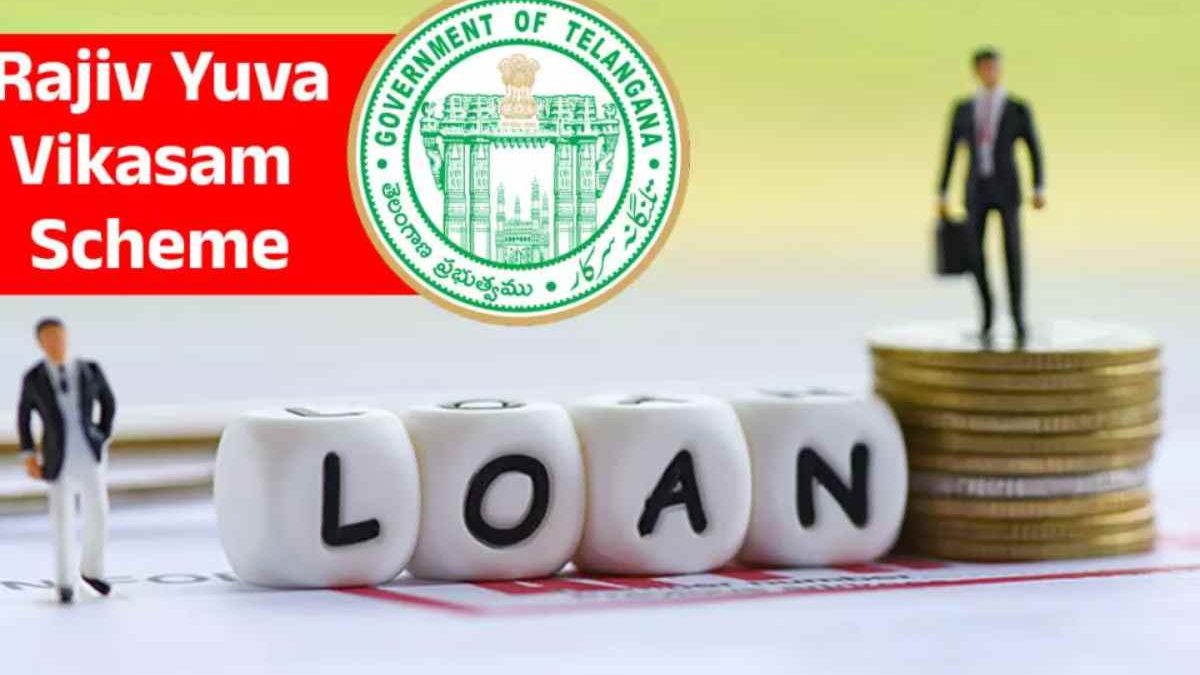The Rajiv Yuva Vikasam Scheme is a flagship initiative by the Government of Telangana aimed at providing self-employment opportunities to the state’s youth, particularly from marginalized communities. Launched in March 2025, the scheme offers financial assistance, skill development, and mentorship to foster entrepreneurship and reduce unemployment.
Table of Contents
Objective and Scope
Named after former Prime Minister Rajiv Gandhi, the scheme seeks to empower youth from Scheduled Castes (SC), Scheduled Tribes (ST), Backward Classes (BC), and Minority communities by providing financial support for self-employment ventures. With an ambitious target of benefiting 5 lakh youth, the government has allocated a budget of ₹6,000 crore for the scheme’s implementation .
Financial Assistance and Subsidy Structure
The scheme offers financial assistance ranging from ₹50,000 to ₹4 lakh, with a subsidy component based on the unit cost:
Up to ₹50,000: 100% subsidy (no loan required)
- ₹50,001 – ₹1,00,000: 90% subsidy, 10% bank loan
- ₹1,00,001 – ₹2,00,000: 80% subsidy, 20% bank loan
- ₹2,00,001 – ₹3,00,000: 70% subsidy, 30% bank loan
- ₹3,00,001 – ₹4,00,000: 70% subsidy, 30% bank loan (in select cases) .
- For extremely poor families, the subsidy is 90%, requiring only a 10% beneficiary contribution.
Eligibility Criteria
To qualify for the Rajiv Yuva Vikasam Scheme, applicants must meet the following criteria:
- Age:
- Non-agricultural categories: 21–55 years
- Agricultural & allied sectors: 21–60 years
- Income:
- Rural areas: Annual income up to ₹1.5 lakh
- Urban areas: Annual income up to ₹2 lakh
- Residency: Must be a permanent resident of Telangana.
- Unemployment: Must be unemployed and seeking self-employment opportunities.
- Family Limitation: Only one member per family is eligible within a five-year period
Priority Beneficiaries
The scheme gives preference to:
- First-time applicants under the Economic Support Scheme (ESS)
- Women (25% reservation), with additional preference for single women and widows
- Persons with disabilities (5% reservation)
- Families of Telangana movement martyrs and those from the SC categorization movement .
Application Process
Online Application
- Visit the official OBMMS portal: cgg.gov.in
- Click on “Apply Online” and register using basic details.
- Log in with your credentials and complete the application form.
- Upload required documents:
- Aadhaar Card
- Ration Card or Income Certificate
- Caste Certificate
- Permanent Driving License (for transport sector)
- Pattadar Passbook (for agriculture-related schemes)
- Sadarem Certificate (for persons with disabilities)
- Passport-sized Photograph
- Review and submit the application.
- Check application status onlineOffline Application
Applicants can also apply offline by visiting the nearest Mandal Praja Palana Seva Kendralu or Municipal Offices, submitting the required documents for verification .
Implementation Timeline
- Launch Date: March 15, 2025
- Registration Period: March 17 – April 14, 2025
- Selection Process: April 6 – May 31, 2025
- Sanction Letter Distribution: June 2, 2025 (Telangana Formation Day)
Bank Linkage and Training
To ensure smooth disbursement of funds, applicants must link their bank accounts to the OBMMS portal. Additionally, the scheme includes one-week training programs in collaboration with industrial departments to equip beneficiaries with skills in business planning, marketing, and management .
Progress and Impact
As of April 2025, the scheme has received over 13 lakh applications, with approximately 6.2 lakh approved. This unprecedented response underscores the youth’s eagerness to embrace self-employment opportunities. The government’s commitment to issuing sanction letters to 5 lakh youth by June 2, 2025, aims to significantly reduce unemployment and promote economic self-sufficiency .
Conclusion
The Rajiv Yuva Vikasam Scheme stands as a monumental step towards empowering Telangana’s youth, fostering entrepreneurship, and reducing unemployment. By providing financial assistance, skill development, and mentorship, the scheme aims to create a robust ecosystem for self-employment, contributing to the state’s economic growth and social equity.

